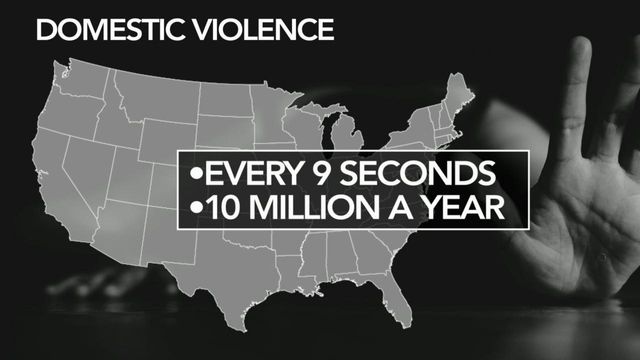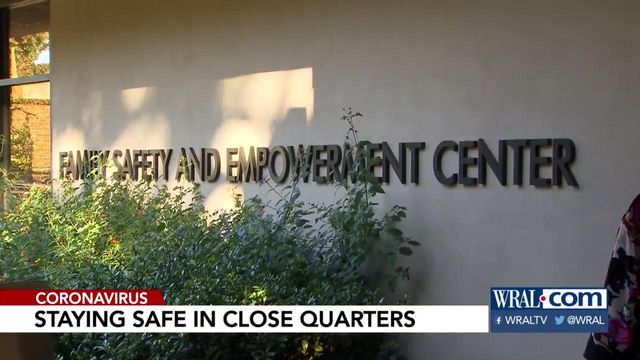'Stay-at-home' order makes it more difficult for domestic violence victims to seek help
Interact, an organization that helps domestic violence victims in Wake County, has seen an increase in callers asking for shelter during the coronavirus pandemic.
Posted — UpdatedInteract, an organization that helps domestic violence victims in Wake County, has seen an increase in callers asking for shelter during the coronavirus pandemic.
State and county health officials say it's important for everyone to be isolating at home, but for those in which home is not safe, that order can be a very devastating thing to hear.
In a phone interview with WRAL News on Sunday, Allison Strickland, Chief Development Officer at Interact, said there has actually been a decrease in the number of calls received. This is likely due to the stay-at-home order, which may limit alone time and the opportunity for victims to place phone calls for help.
Domestic violence advocates have raised these exact concerns in the wake of current social isolation and "shelter-in-place" protocols.
These precautionary protocols meant to protect people from coronavirus require a certain level of isolation and confinement--the exact sort of circumstance that could increase the risk for domestic violence.
"What we do know is over 50% of those who are calling are referencing this pandemic in their calls for concern," Strickland said. "And shelter is the number one thing that people are seeking right now."
Strickland said there are some steps domestic violence victims can take to stay safe during the pandemic.
"What we really want to encourage people to know is, number one, know that Interact is here," Strickland said. "They are not alone. Even if they feel alone, we are here 24/7. If they can reach out, we want to be there for them. We can help in so many ways."
Interact can offer various forms of help, including legal advice and helping a victim make a personal safety plan.
"We want people to really think about a safety plan," Strickland said. "Who is someone they could call? Do they have a safe word that, if they said it, the person on the other end of the phone knows that they need to come and get them right away? Do they have a small bag ready? Do they know where weapons are in the home?
During this time, families are battling with increased financial and emotional stress--stressors that experts say can become triggers leading to more violence or emotional abuse. Couple these stressors with the close-quarters and isolation, and it could lead to a dangerous situation in a home that already struggles with domestic violence. Because of this, Interact and many other local non-profits are creating resources for anyone that feels this situation may put them at risk.
Leaders at the center said total isolation can be dangerous and recommend that survivors keep in contact with friends and family through technology.
Related Topics
• Credits
Copyright 2024 by Capitol Broadcasting Company. All rights reserved. This material may not be published, broadcast, rewritten or redistributed.





